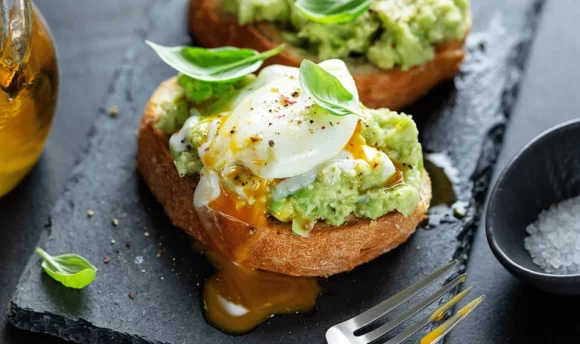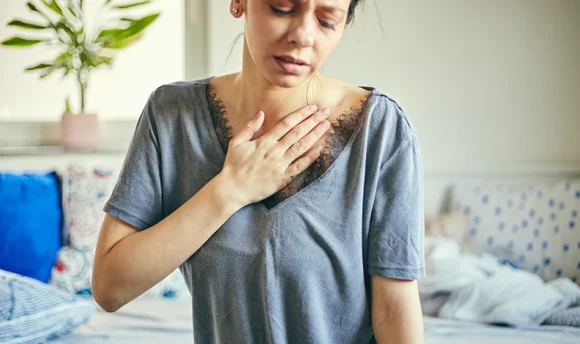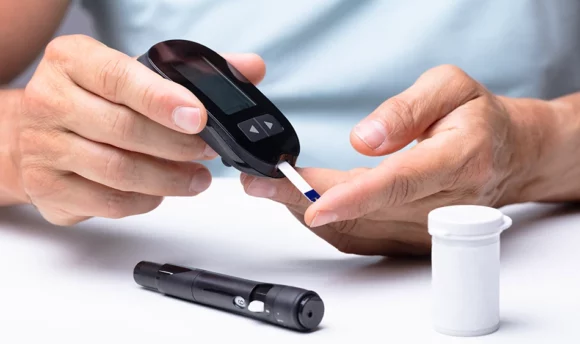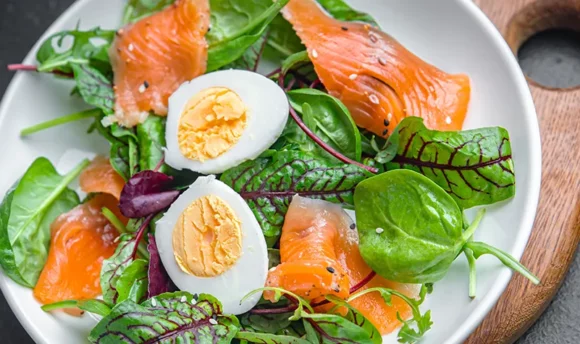Keto Headache: Taking the Sting out of Keto
Keto diet might come with unpleasant side effects, such as bad breath, fatigue, and headache. What are the main causes of keto headaches?

A keto headache is one of the symptoms one experiences when transitioning to a ketogenic diet. The severity of the symptoms differs from one person to another. Some people experience short, mild headaches, while the headaches can last for hours for others.
Fortunately, keto headaches are temporary, short-term effects when your body adjusts from low-carb to fat-burning mode.
This article offers excellent tips to keto dieters on what causes keto headaches and how to prevent and treat them.
What Causes Headaches on Keto?
A ketogenic diet is a high-fat diet with moderate protein and low carbs. When you limit your carbohydrate intake, your body enters ketosis. Ketosis is when your body makes ketones by burning fat for energy to compensate for the carb deficit.
Below are some of the common factors that cause keto-related headaches.
#1 Low blood sugar levels
Your brain primarily uses glucose for energy. When you go on a keto diet, you majorly stop eating carbs, and your body relies on ketone bodies for energy instead of glucose. The decreased blood glucose levels cause brain fog, mental fatigue, hunger, and keto headaches.
Even though you have glucose stored as glycogen, this is inadequate to supply your brain while on keto, and the body has to turn to fat sources.
On keto, ketones are the primary fuel source, and the brain takes time to adapt to this transition. It might take a few hours, days, or even a week. However, once the brain runs on ketones, the low blood sugar levels do not matter.
#2 Dehydration
One of the most common causes of keto headaches is dehydration. People tend to urinate more during nutritional ketosis. The body tends to use glycogen (stored glucose), and the breakdown of glycogen molecules releases water through urine.
When dehydrated, the body releases less insulin, the hormone responsible for absorbing blood sugar. In turn, the low insulin levels affect electrolytes such as sodium that play a pivotal role in hydration.
Electrolytes also play a massive role in the nervous system, and the overall balance of body fluids and an electrolyte imbalance can cause headaches. All these factors lead to headaches, and with headaches, you may also experience impaired vision, dizziness, and a dry mouth.
#3 Electrolyte imbalance
Electrolyte imbalances are a significant cause of keto headaches. There are two leading causes behind electrolyte imbalances: low insulin levels and reduced dietary sodium.
A keto diet leads to low insulin levels that cause loss of electrolytes through urine on keto.
A low-carbohydrate diet is also deficient in electrolytes such as sodium and potassium. Most dietary sodium comes from refined foods, and when you eliminate these, you need to supplement the sodium deficit.
Most electrolyte-rich foods, such as potatoes, fruits, and carrots, are also high in carbs and are thus eliminated on a keto diet.
#4 Other potential factors
Other potential factors such as the overuse of medication and drugs may lead to dehydration and increase your risk of experiencing headaches on a keto diet. Ketosis is known for inducing insomnia and this factor could also lead to unpleasant headaches.
Other age-related and lifestyle factors such as depression, stress and anxiety, poor sleeping patterns, and skipping meals can also lead to keto headaches.
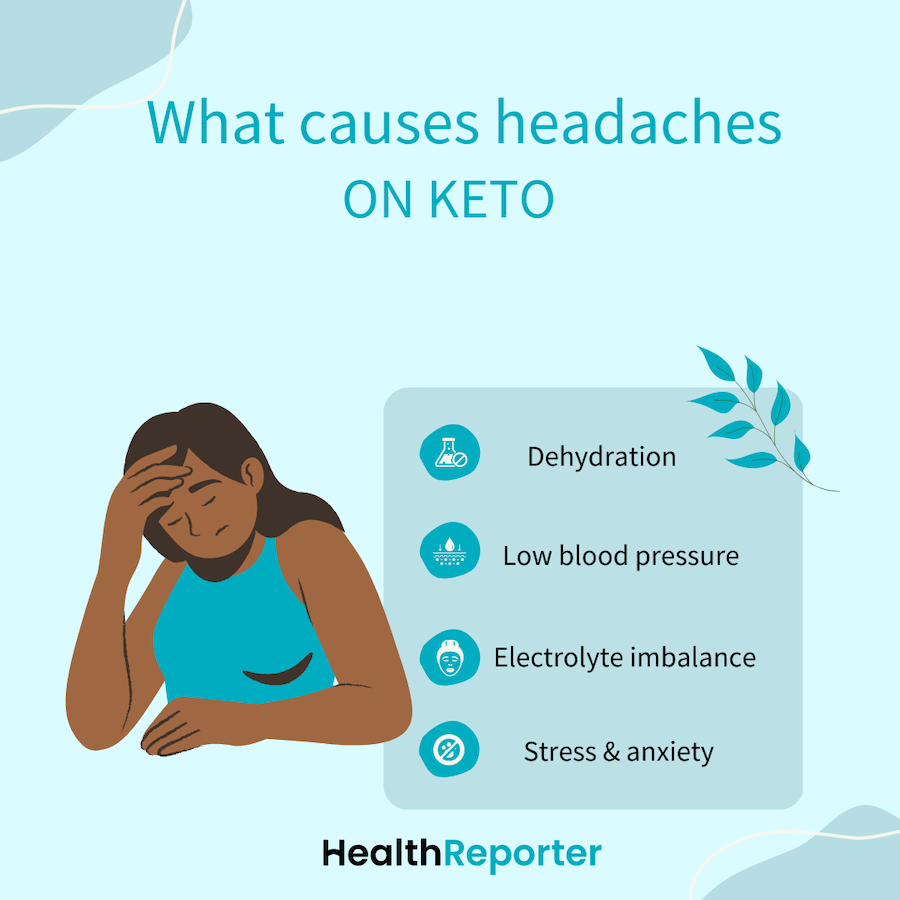
Tips to Prevent Keto Headaches
What can you do to alleviate keto headaches? Below are some easy remedies for keto headaches and continued success on keto.
#1 Stay hydrated
It would be best to avoid dehydration and drink adequate fluids throughout the day. Therefore, you should drink plenty of water to help flush out toxins released from the burning of stored fat during ketosis.
You should drink at least half your body weight in ounces to stay hydrated; for instance, if you weigh 140 pounds, you should drink 70 ounces of water.
#2 Eat nutrient-dense foods
One of the ways you can counteract the toxins released from your body during fat loss is through eating nutrient-dense foods. Avoid processed foods and foods high in GMOs and hormones as they might lead to further build-up of toxins.
#3 Cut down on alcohol
Alcohol dehydrates you and makes you urinate more. Lowering your alcohol intake reduces dehydration and the keto headaches that come along with it.
#4 Eat more electrolyte-rich foods
The keto diet increases the chances of having electrolyte imbalances in your body. However, some electrolyte-rich foods such as spinach, tomatoes, pumpkin seeds, and mushrooms replenish the depleting electrolyte supplies.
You can also take an electrolyte supplement to alleviate keto headaches.
#5 Avoid intense exercise
When your body begins to enter ketosis, it goes into a state of shock and needs time to adapt. Pushing yourself too hard on exercise during a keto diet adds strain to your body which might further lead to headaches.
Long, intense workouts also contribute to electrolyte imbalance as you will lose electrolytes through sweat.
#6 Eat water-rich, low-carb diets
Adding water-rich, low-carb foods to your diet has numerous health benefits as they help you stay hydrated. Some of these foods are cucumbers, lettuce, and raw tomatoes.
#7 Salt your food
Sodium gets a bad rap, but completely removing salt from your diet is equally harmful. Adding some salt to your food helps alleviate electrolyte imbalances.
If symptoms of a keto headache persist, seek medical advice from a health professional to ensure the headache is not from underlying medical conditions.
#8 Ensure you meet your daily macros
Planning your meals and getting your nutrients from nutrient-dense, keto-friendly sources helps you minimize keto headaches. Your body also adapts faster to the diet when you eat whole, nutrient-dense, keto-friendly foods.
Keto Headache Relief
If you need immediate relief from a keto headache, below are simple remedies you can use to cure the headache.
#1 Drink water with table salt
The simplest solution is adding half a teaspoon of table salt to a water glass and drinking it. If the headache results from dehydration or sodium deficiency, it will disappear within 20 to 30 minutes. If cold salty water is intolerable to you for drinking, you can warm it to make it more tolerable.
#2 Drink bone broth
If warm water isn’t good for your taste, you can switch it up by making bone broth. It doesn’t matter if it is chicken or beef. Chicken and beef broth are both rich in sodium. Bone broth is sometimes bland and an almost tasteless drink. You can improve the taste by adding a spoonful of butter.
Butter not only improves the taste, but it is also in line with your keto macros as it is rich in fats.
#3 Drink vegetable soup
Soup helps you stay hydrated, nourished, and supports keto levels. You can make soup from non-starchy veggies such as cauliflower. Add some seasoning for taste and allow the mixture to boil for a few minutes.
Vegetable soup is surprisingly delicious and is an excellent option for people on vegan keto.
#4 Drink some coffee infused with butter and salt
If your keto headache persists and you are a coffee lover, you can make a cup of coffee and infuse it with two tablespoons of butter or coconut oil and half a teaspoon of salt to taste.
The gist of these remedies is increasing your sodium levels and reducing dehydration.
How Long Does a Keto Headache Last?
Like other keto flu-like symptoms, keto headaches are personal and vary with everyone. However, most people get keto headaches during the early phases of a keto diet.
The headache improves as one stays hydrated and eats nutritious foods throughout the keto diet. Typically, keto headaches last from a day to a week, though some people may experience the headache pain for longer. If symptoms persist, you should seek advice from a medical professional.
Can Keto Cause Migraines?
Although keto causes headaches, recent research shows that the keto diet is a potential cure for migraines. The study proposes a keto diet for chronic, episodic migraines and drug-resistant headaches.
An observational study in 2015 also showed that the keto diet reduced the frequency, severity, and duration of migraines on a low-carb diet.
A Word From Nutritionist
When you correctly follow a keto diet, your body enters into ketosis, shifting from burning carbohydrates to burning fats for energy. This transition can cause some negative symptoms.
Your body’s response to transitioning to a ketogenic diet mimics flu symptoms, thus the name keto flu. Some keto flu symptoms include nausea, muscle cramps, fatigue, headache, and vomiting.
Headaches can be a symptom of keto flu or occur independently without experiencing other symptoms. The most common causes of keto headache are dehydration and electrolyte imbalances.
It would be best to adopt healthy habits such as eating whole foods rich in nutrients and minerals to help alleviate headaches. Stay hydrated and eat electrolyte-rich foods.
Generally, keto headaches disappear within a few days, and if they persist, it may be time to see your doctor and evaluate if there is an underlying issue.
Conclusion
Now that you know the causes and prevention measures of keto headaches, the fear of keto headaches should not deter you from starting a ketogenic diet.
A keto diet is an excellent tool for weight loss, and keto headaches are common during this transition. Keeping a close eye on your electrolyte levels, staying hydrated, and eating keto-friendly nutrient-dense foods helps minimize the effects of a keto headache.
Before making a significant dietary change, seek help from your doctor or nutritionist for the best results.

















































 Select your language:
Select your language: 





